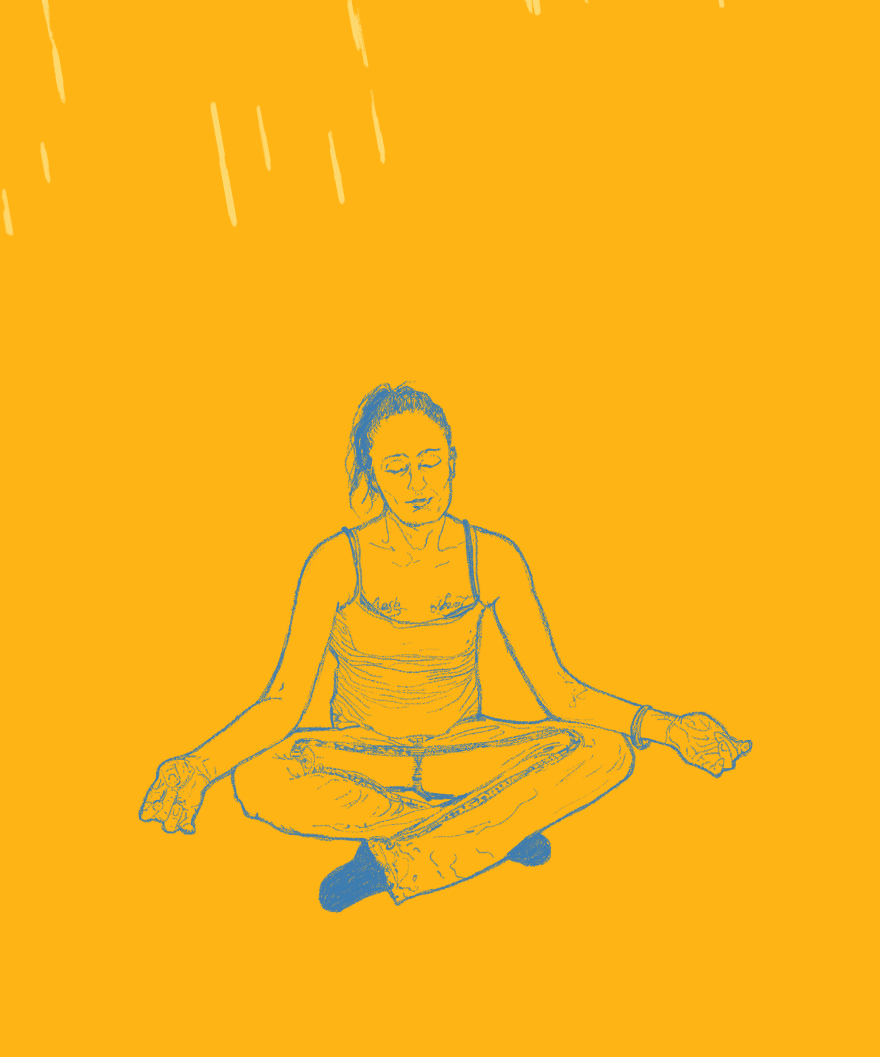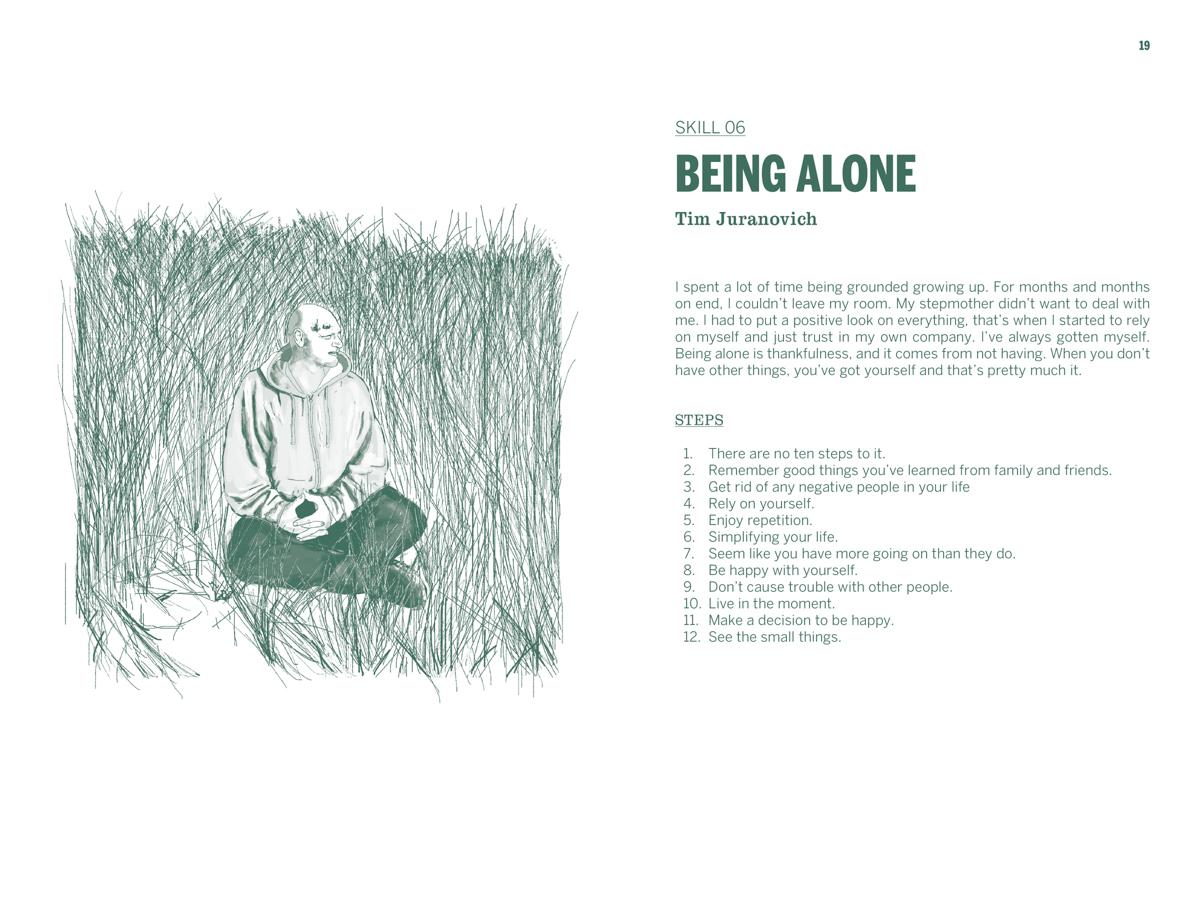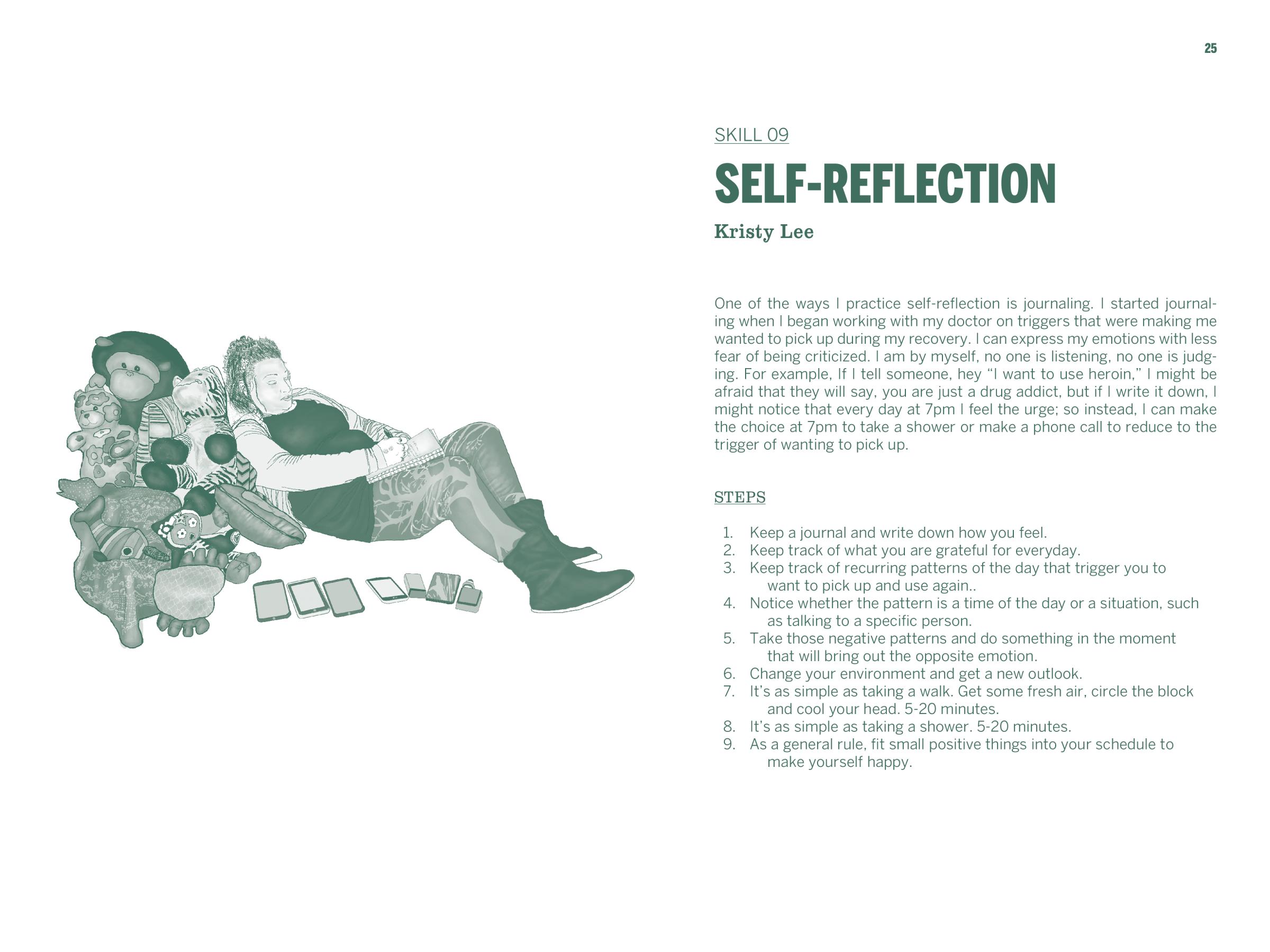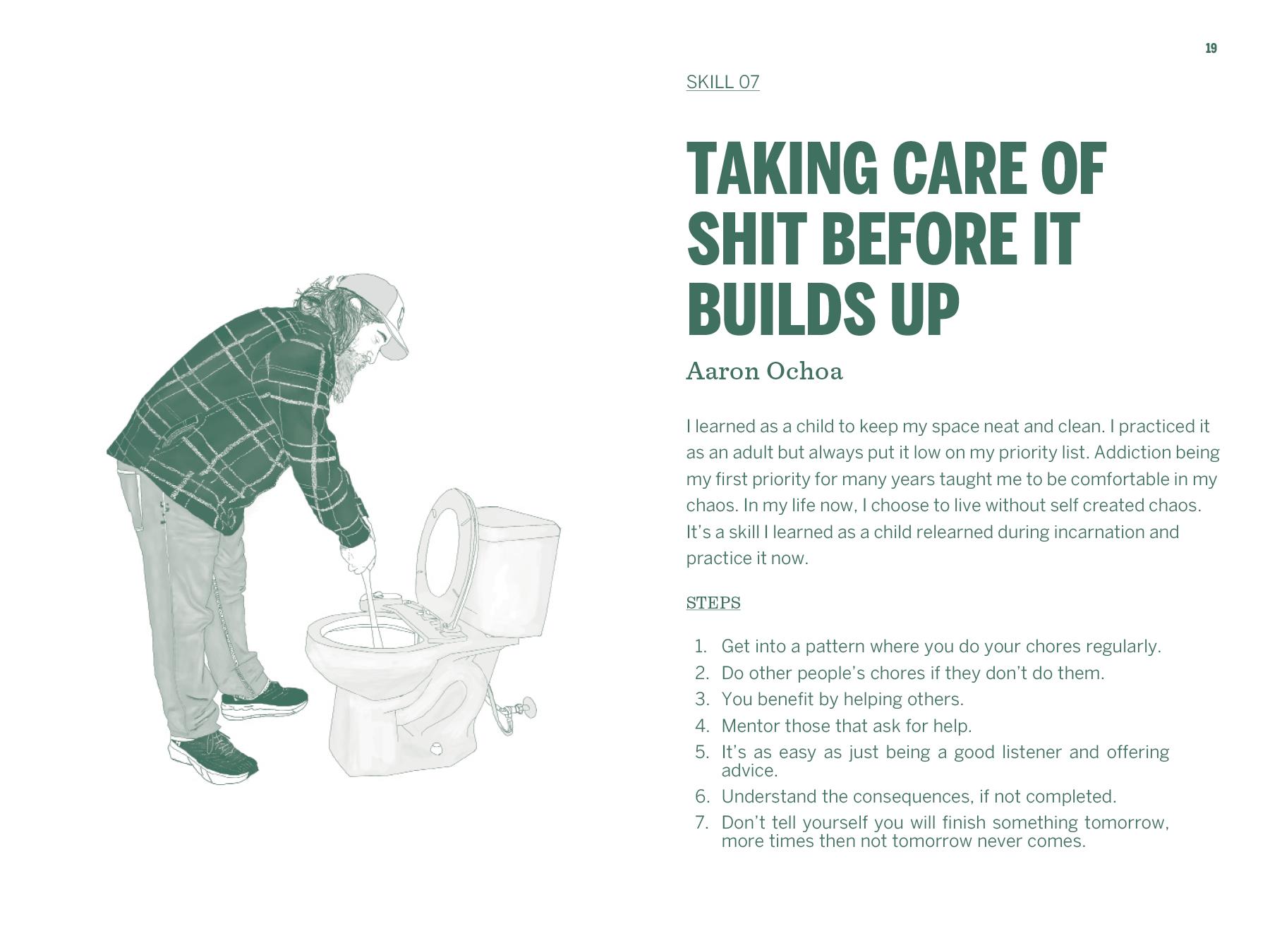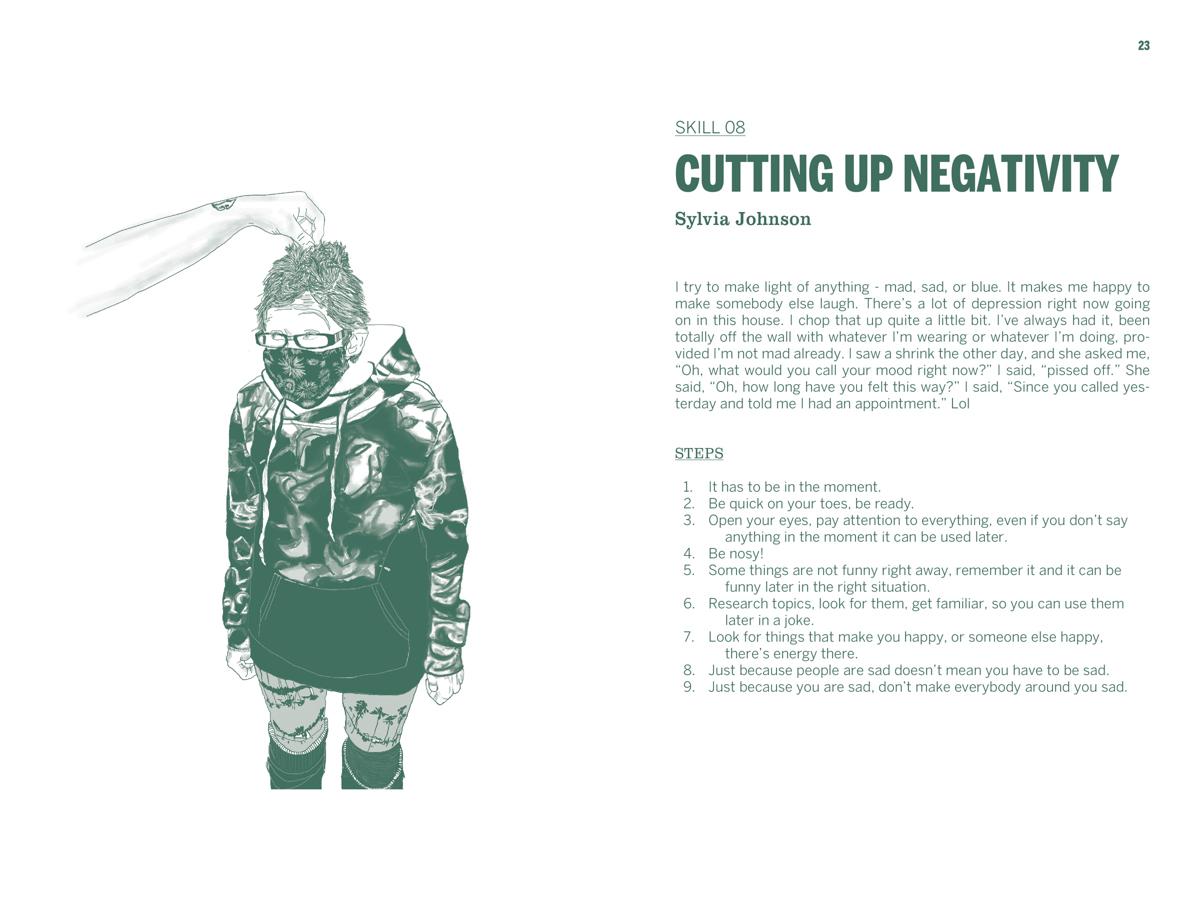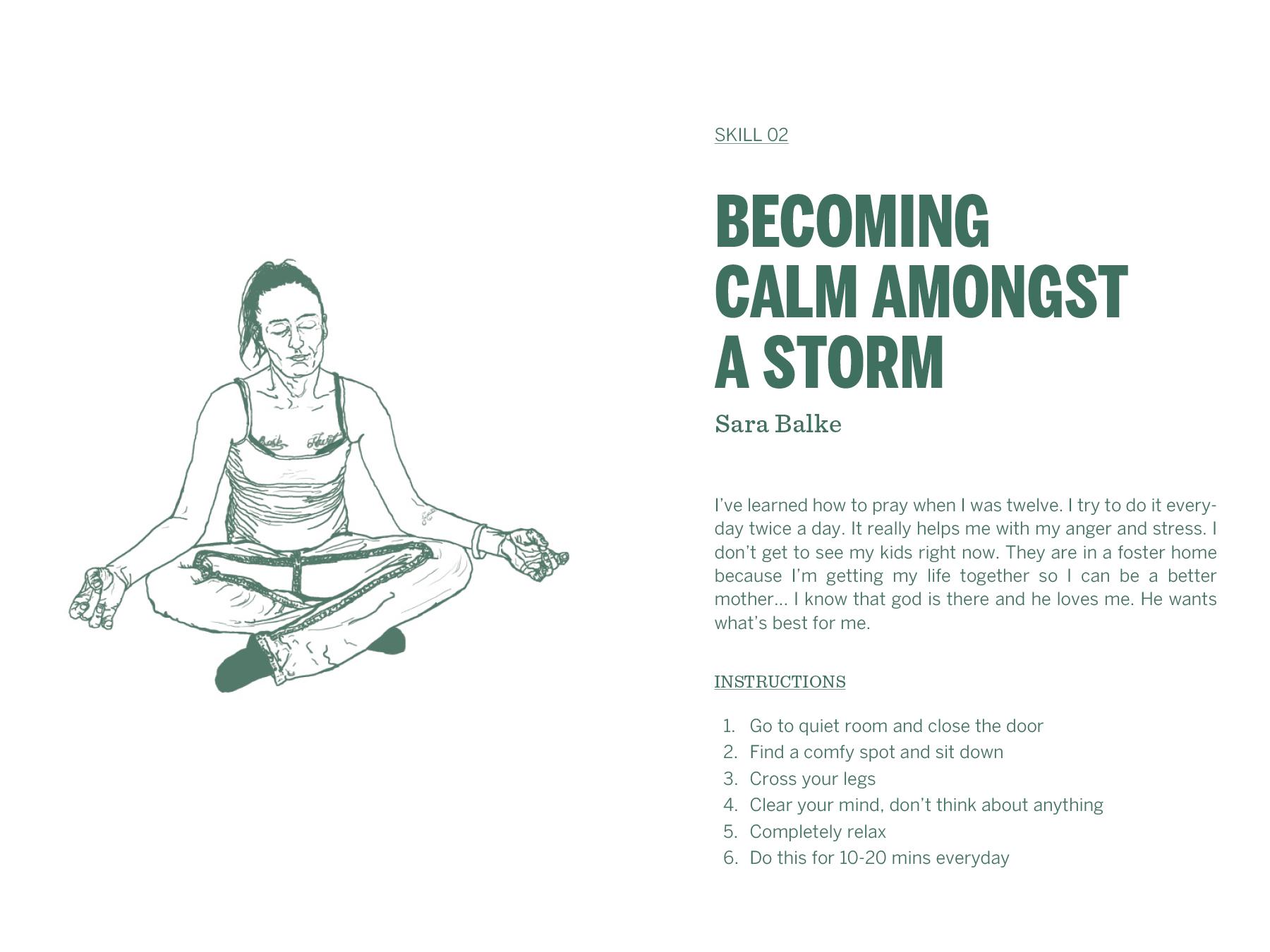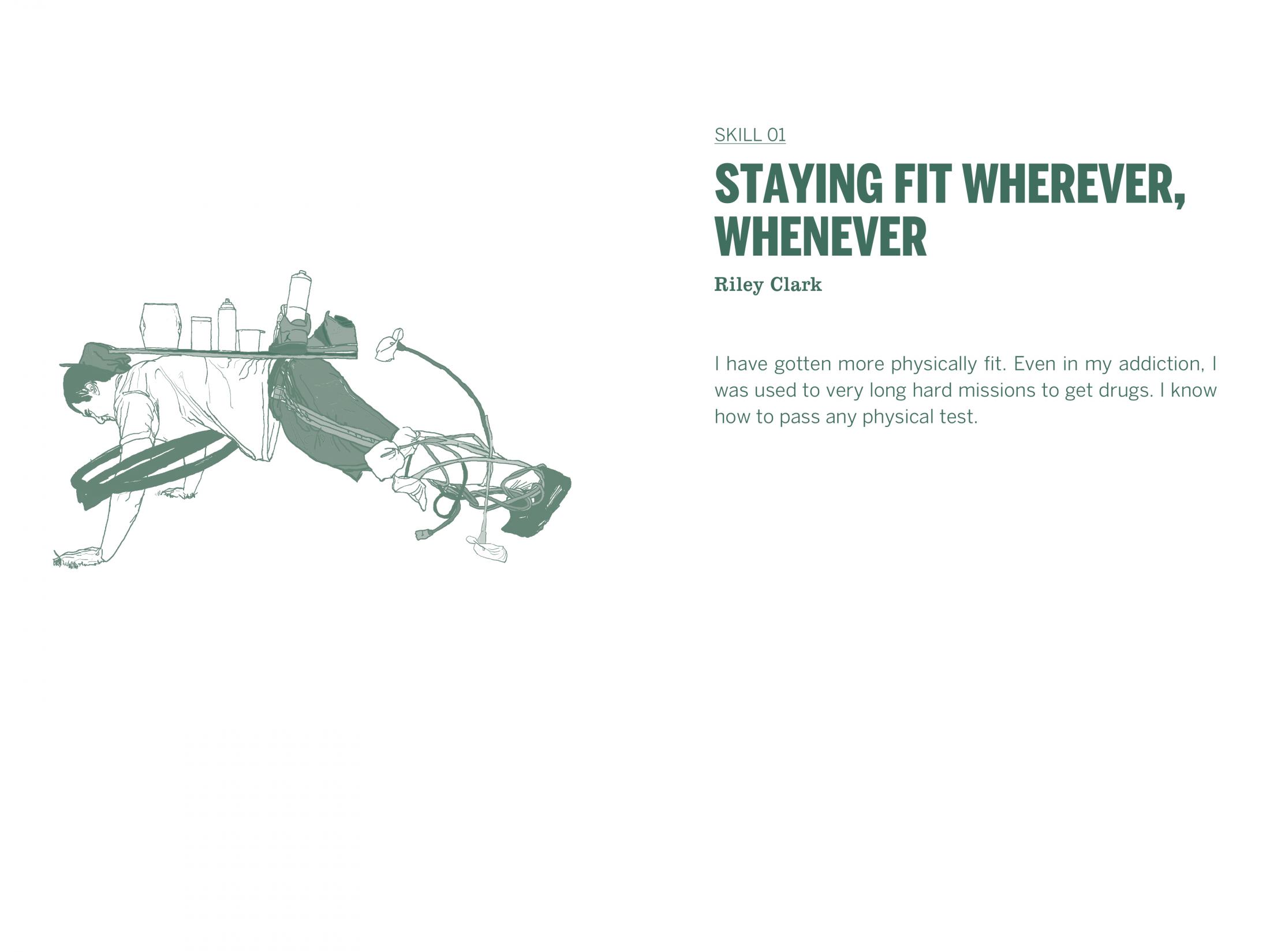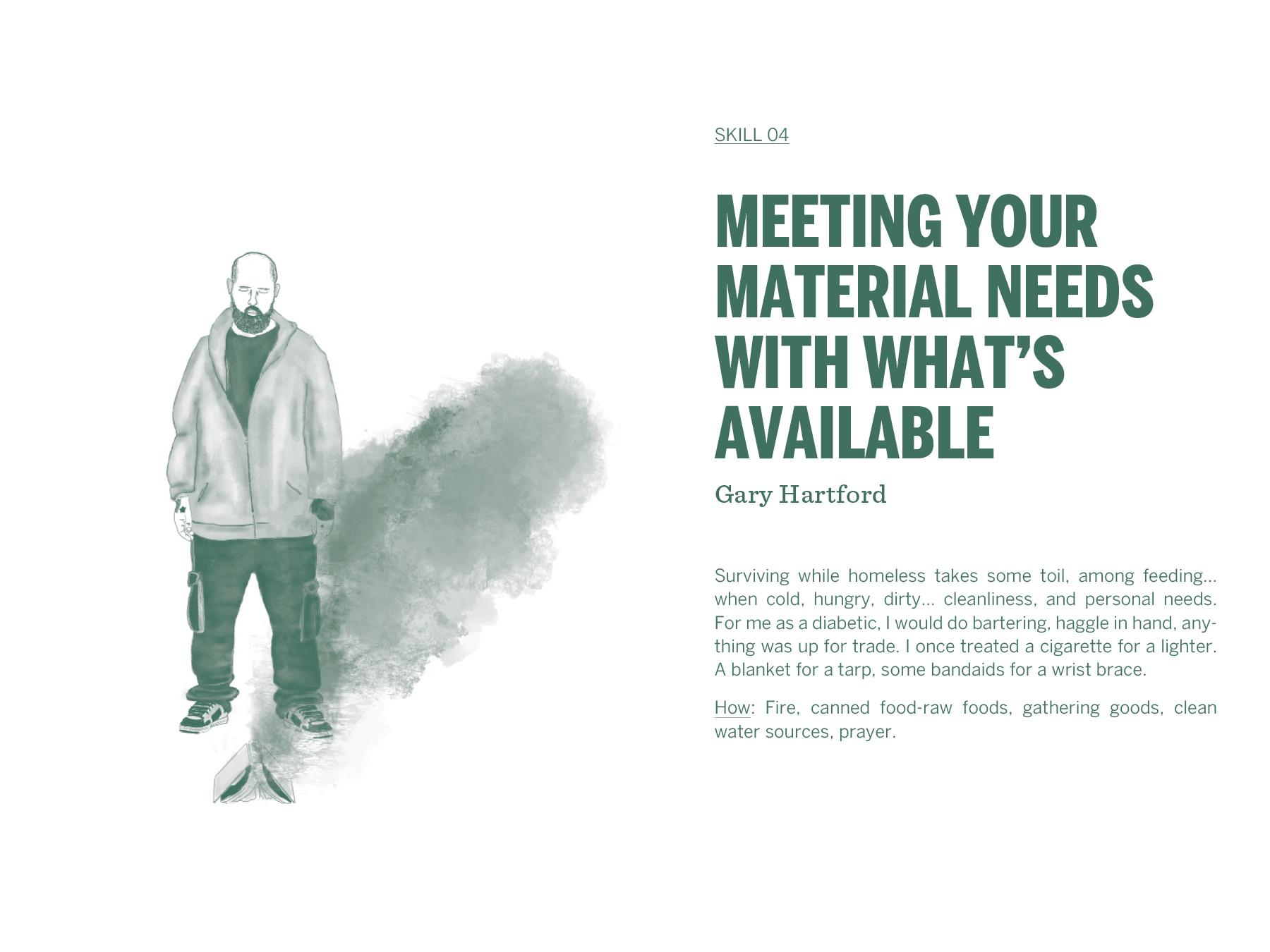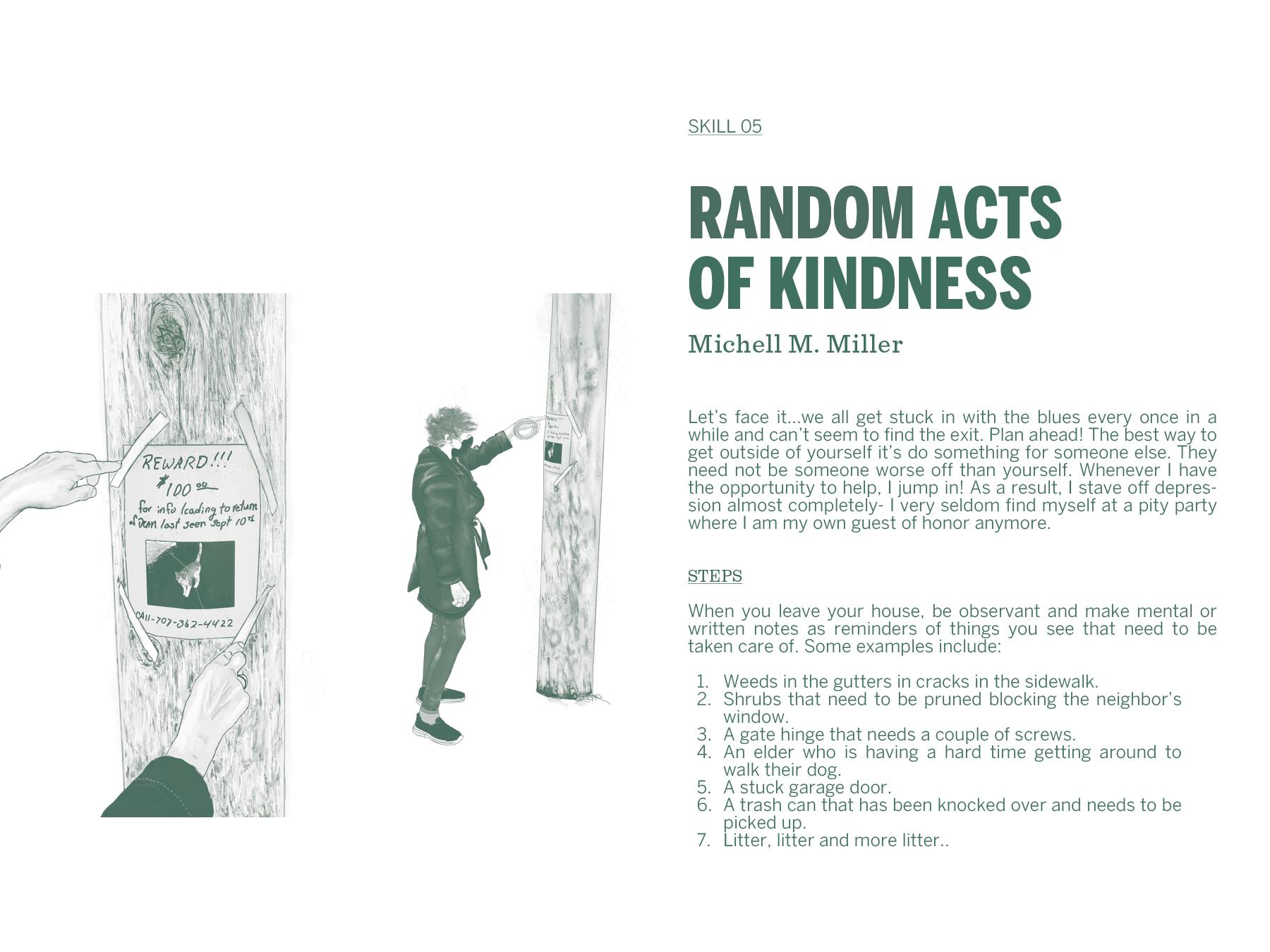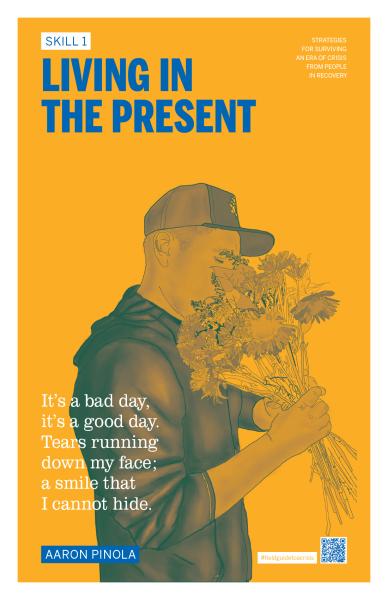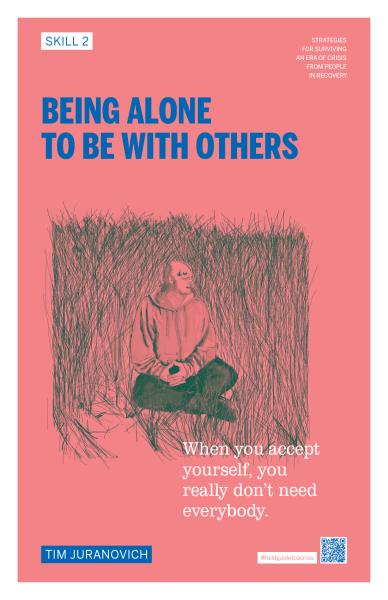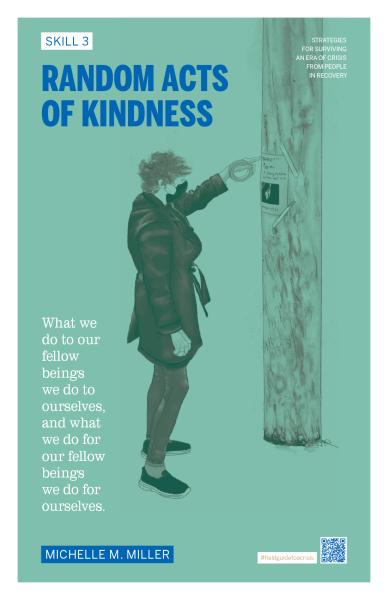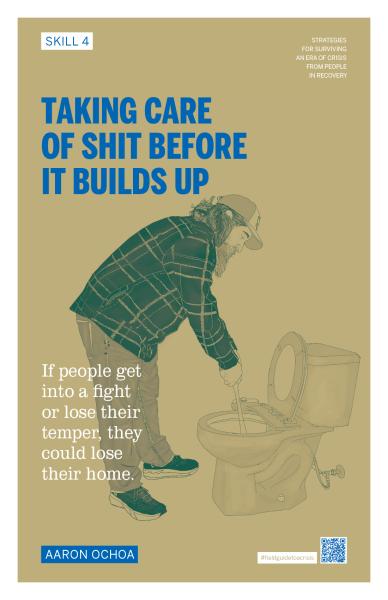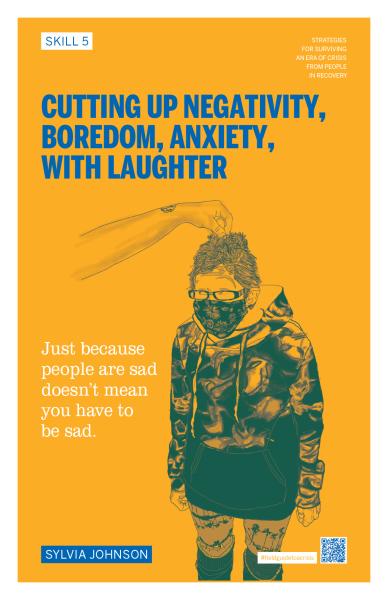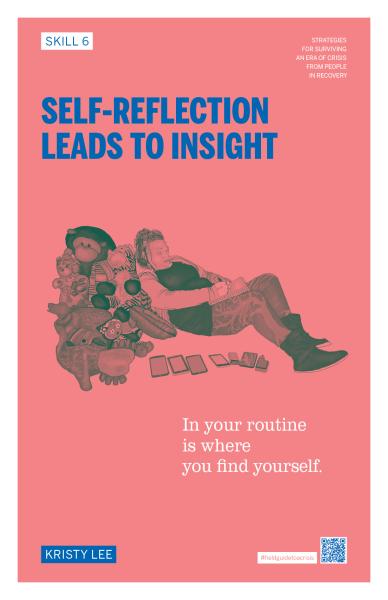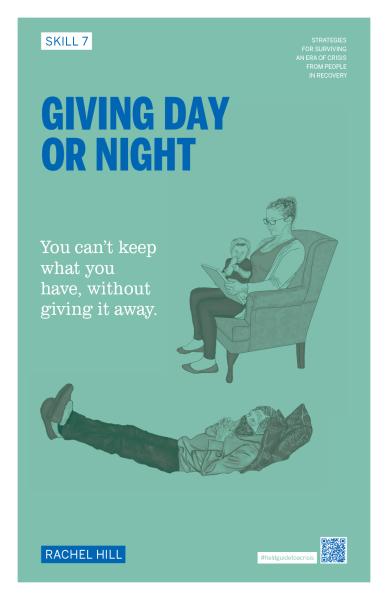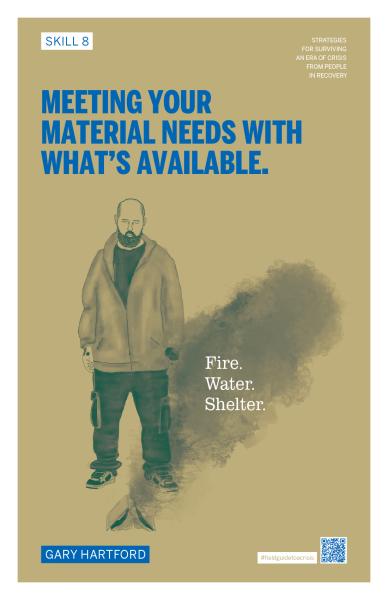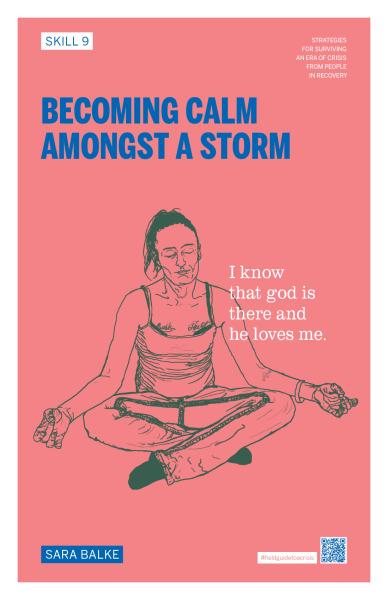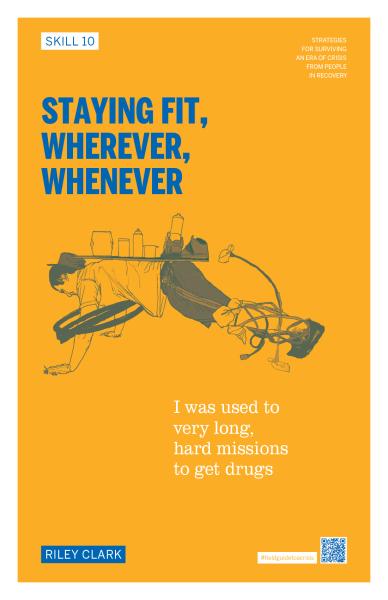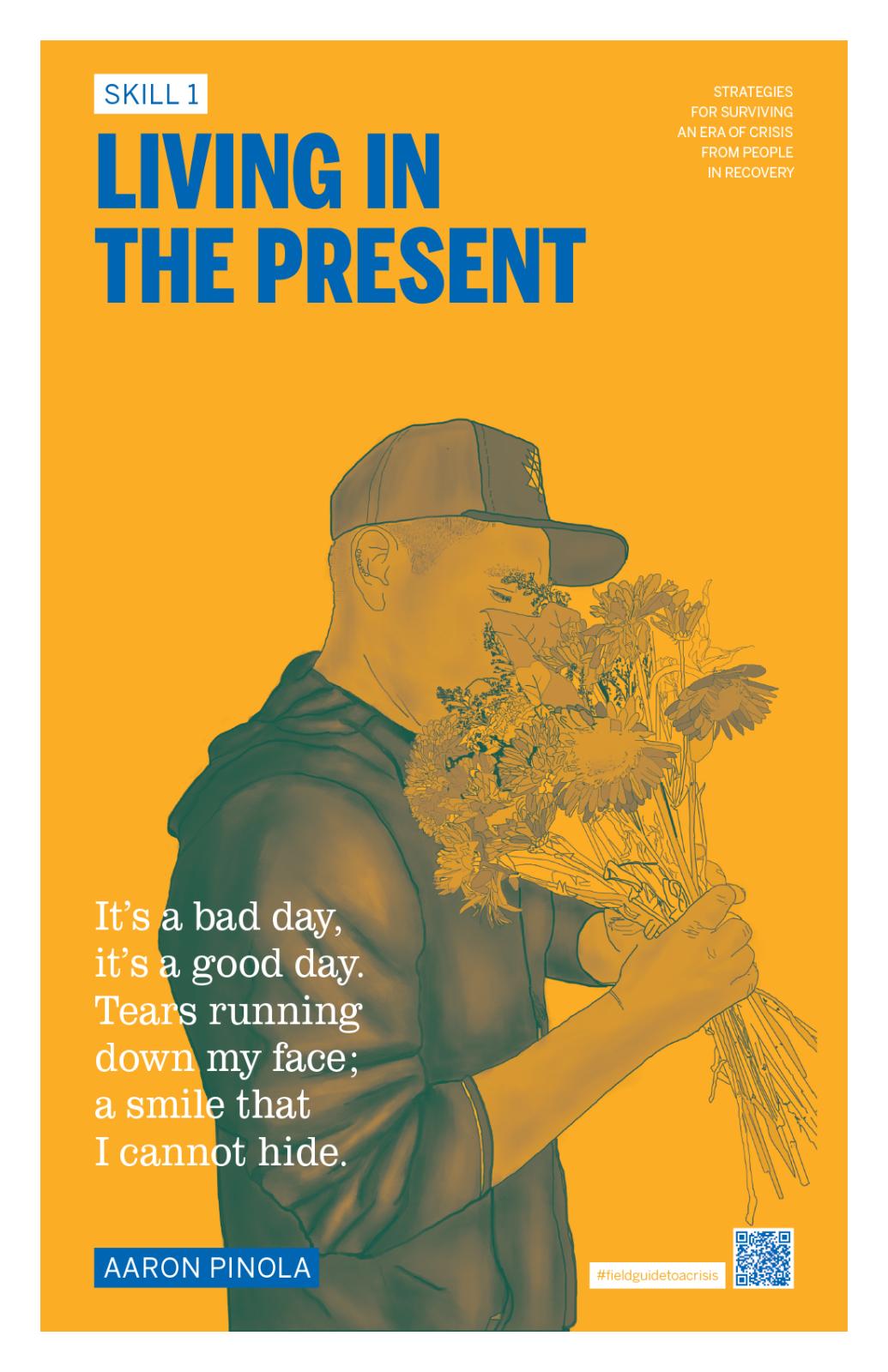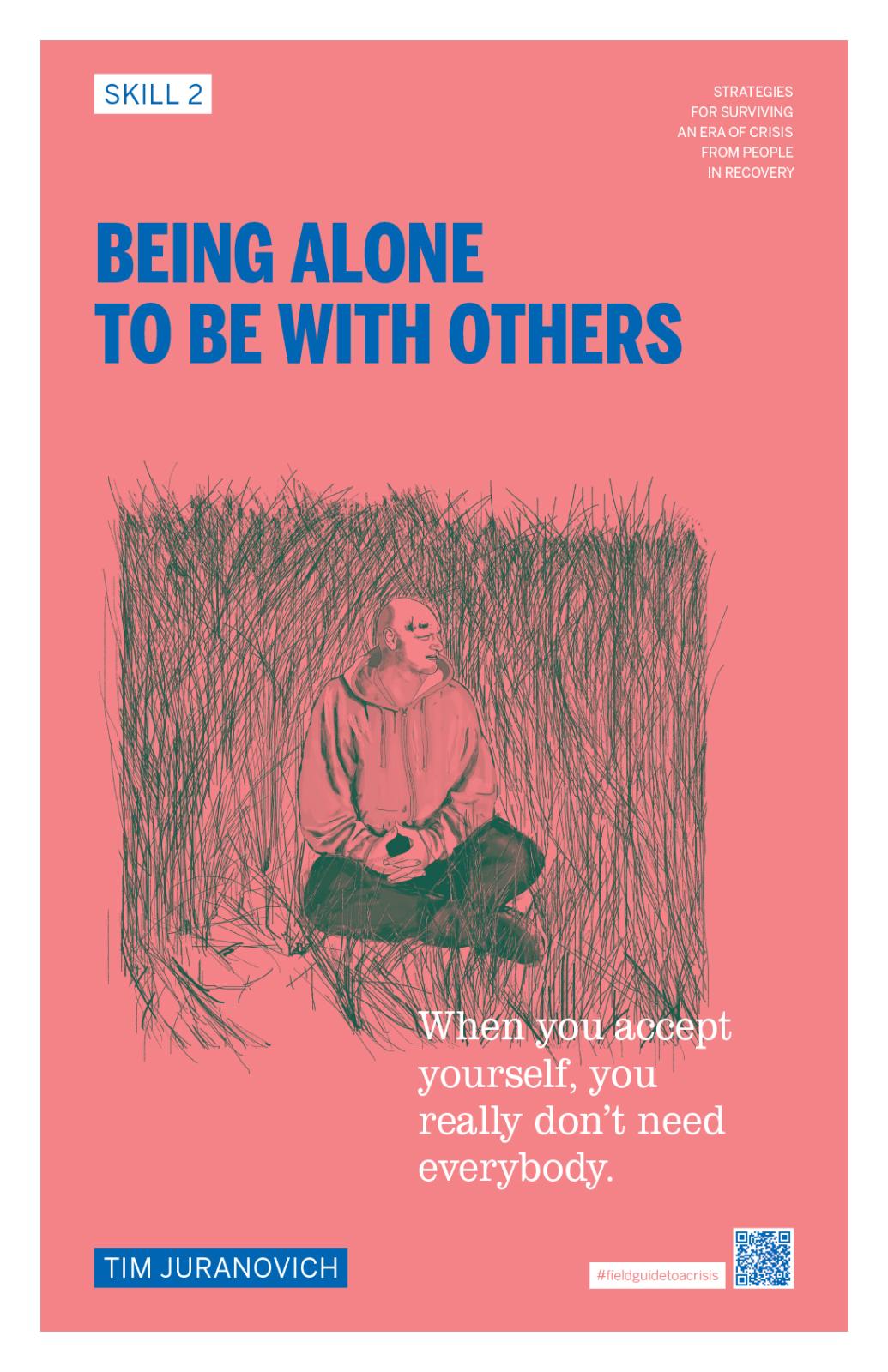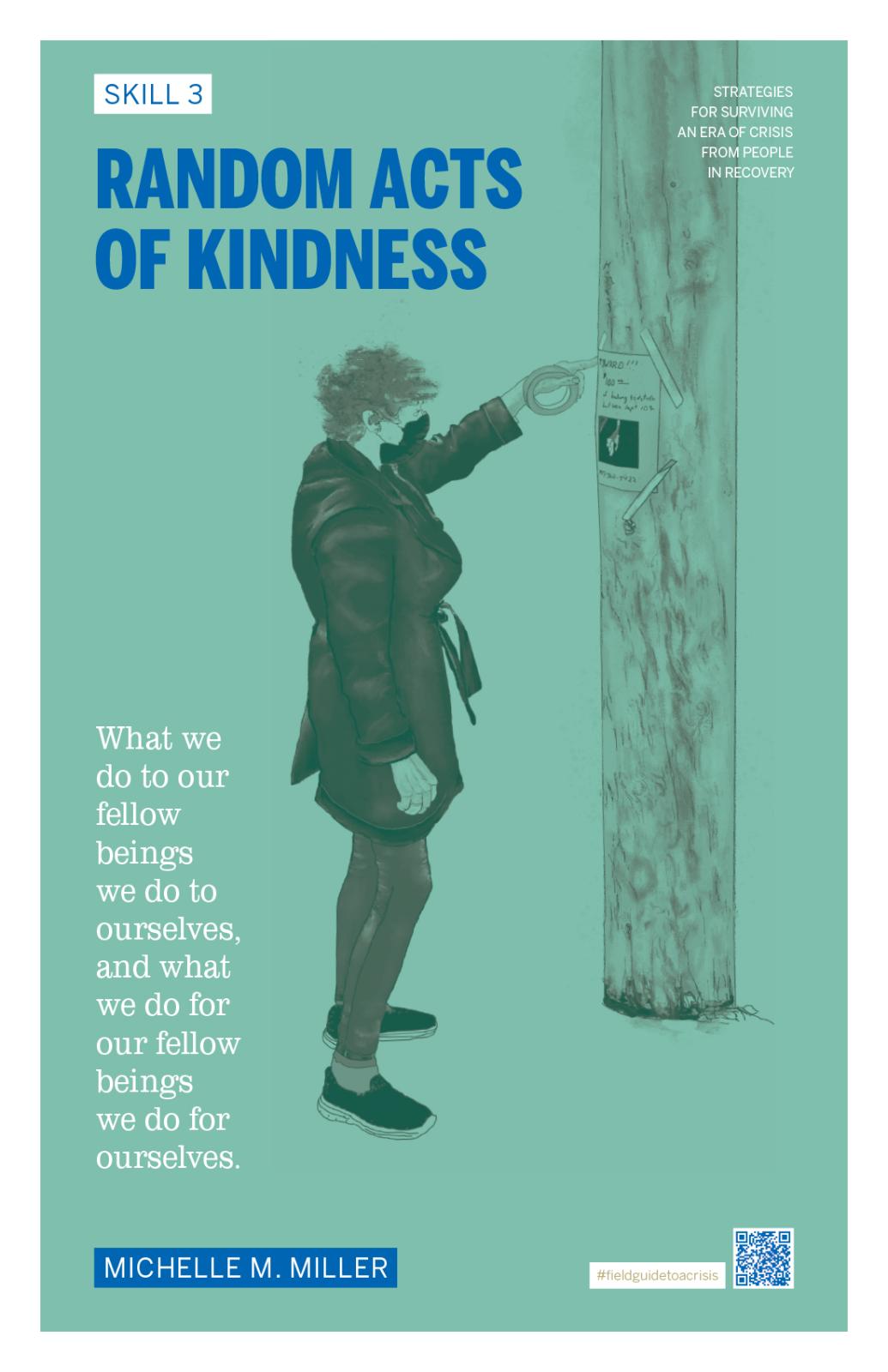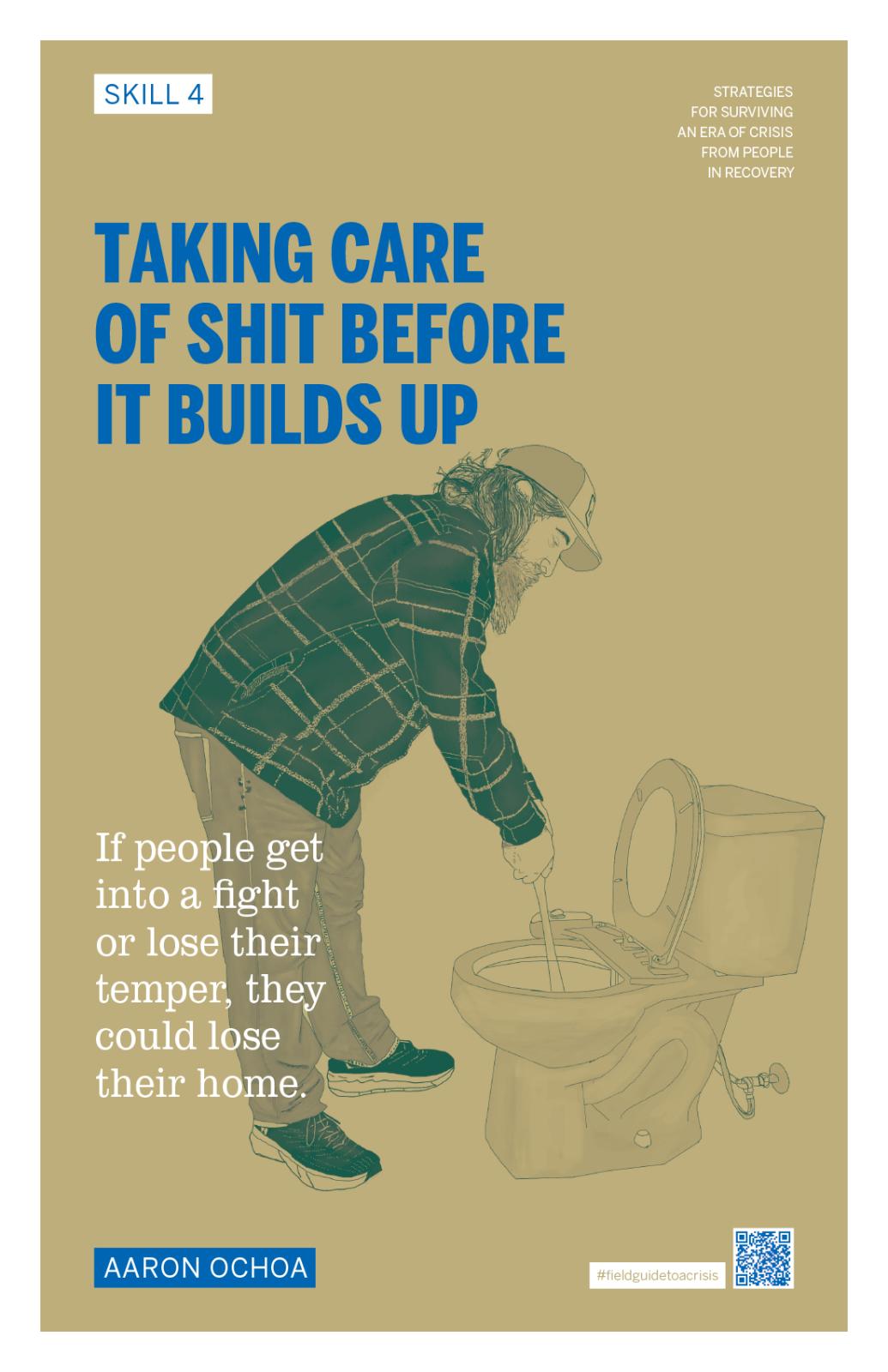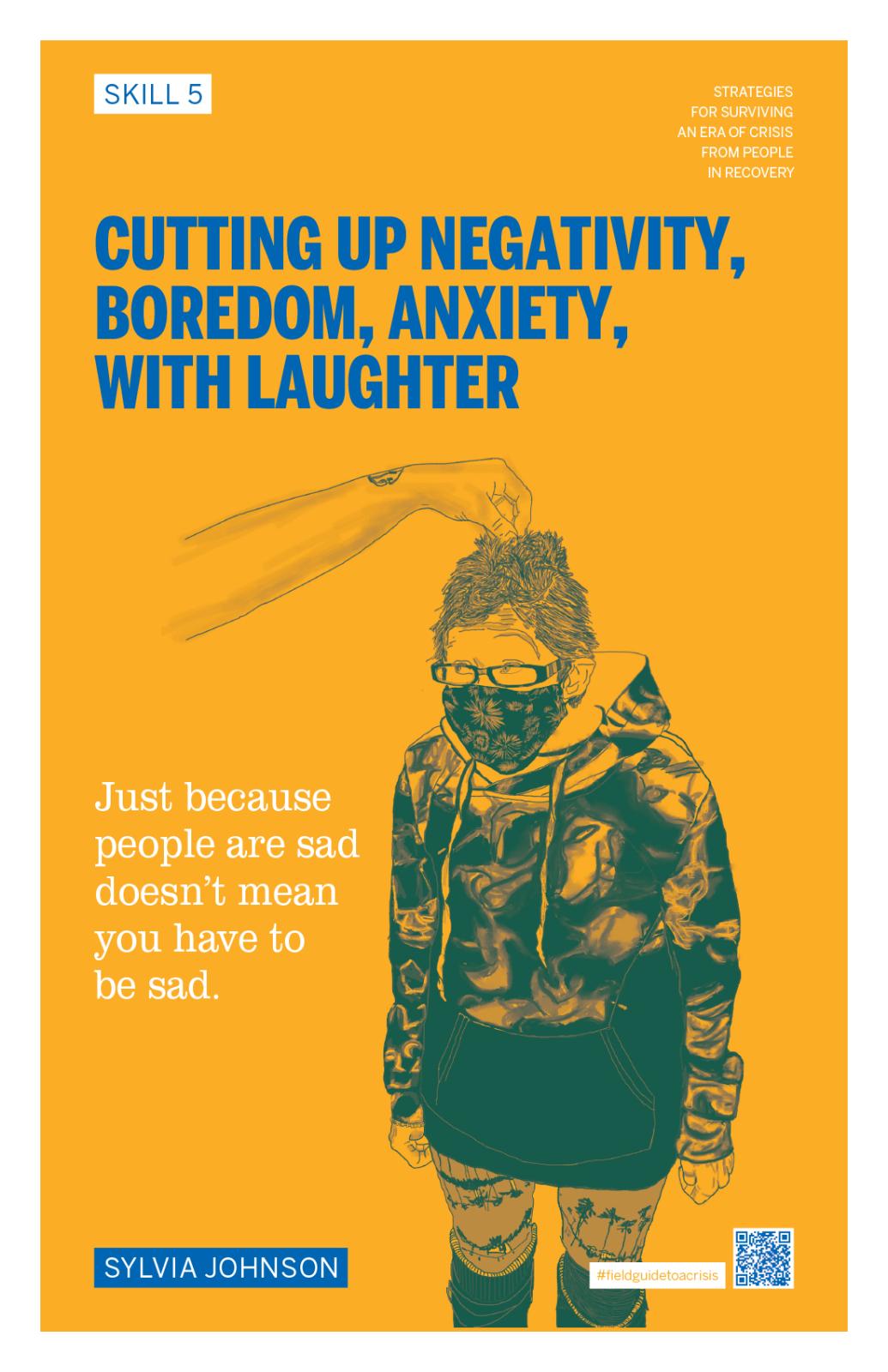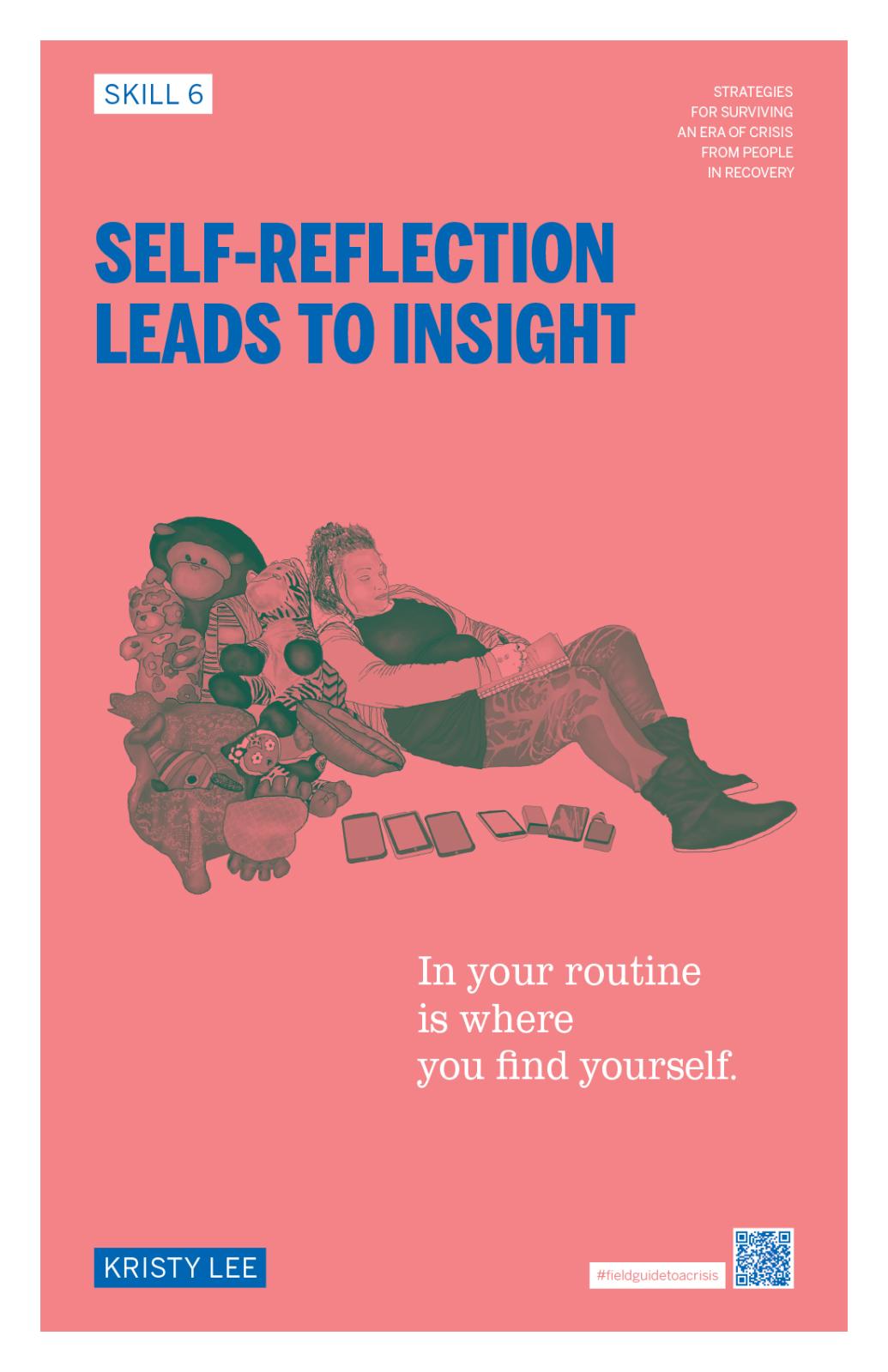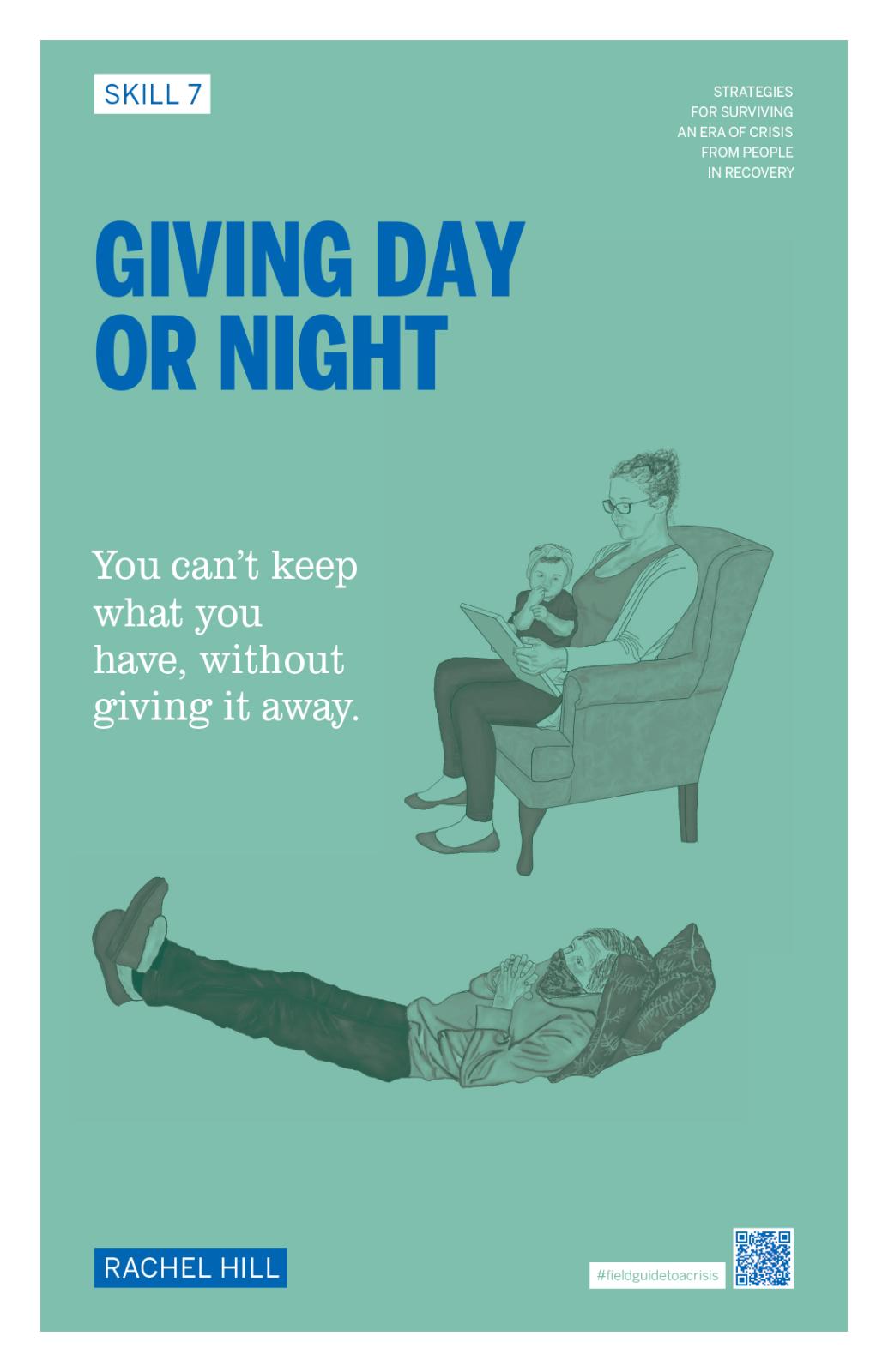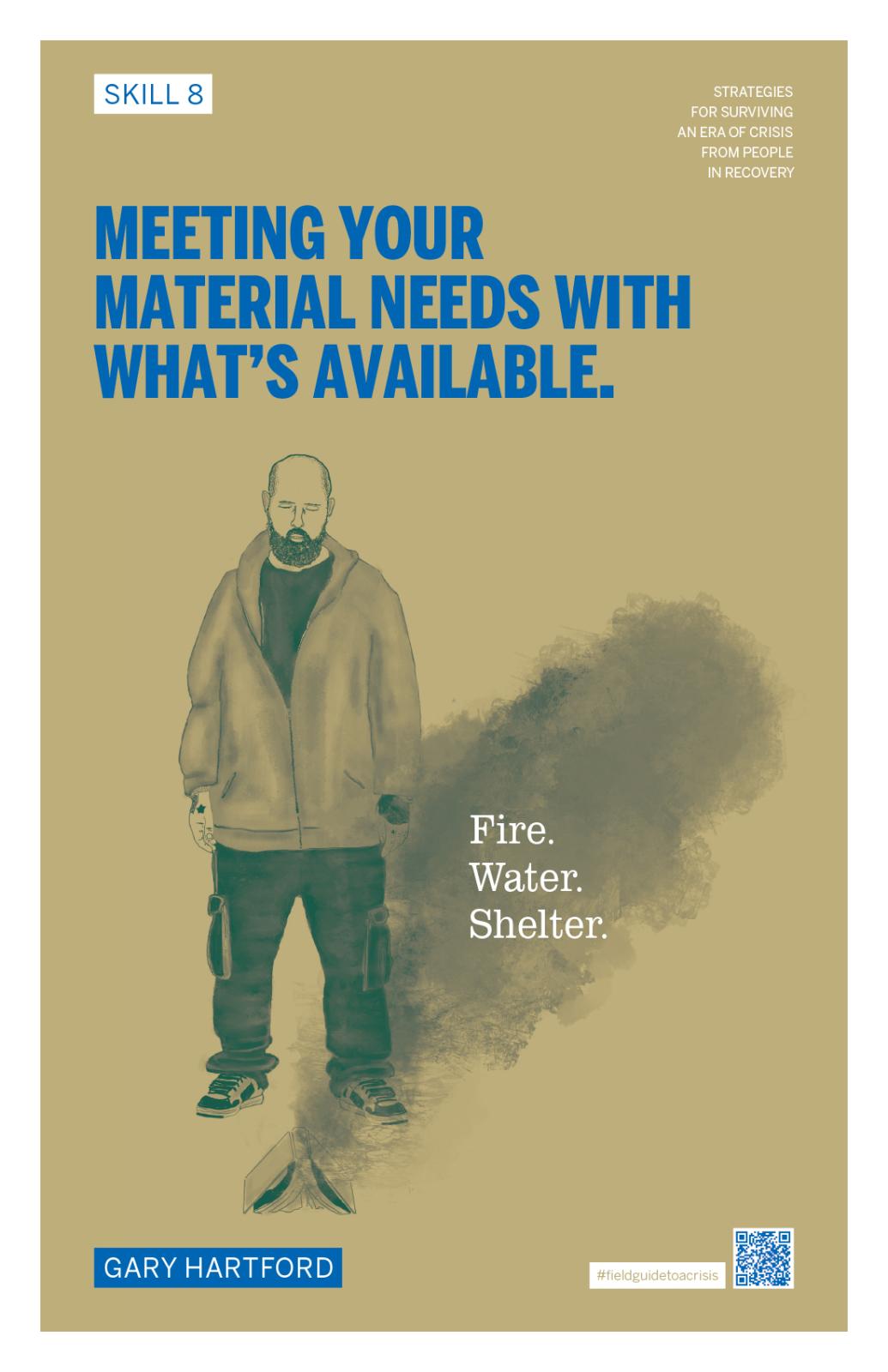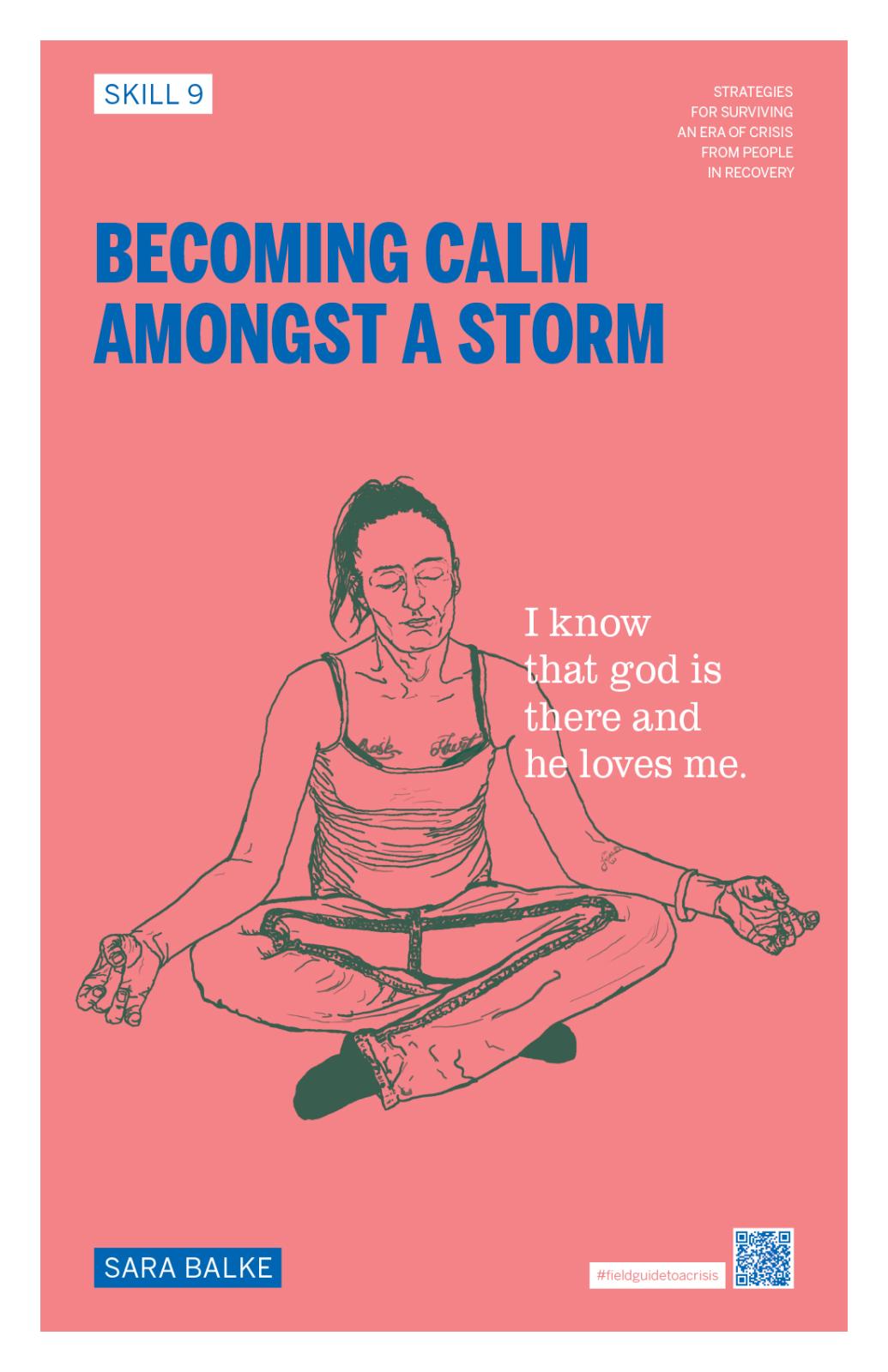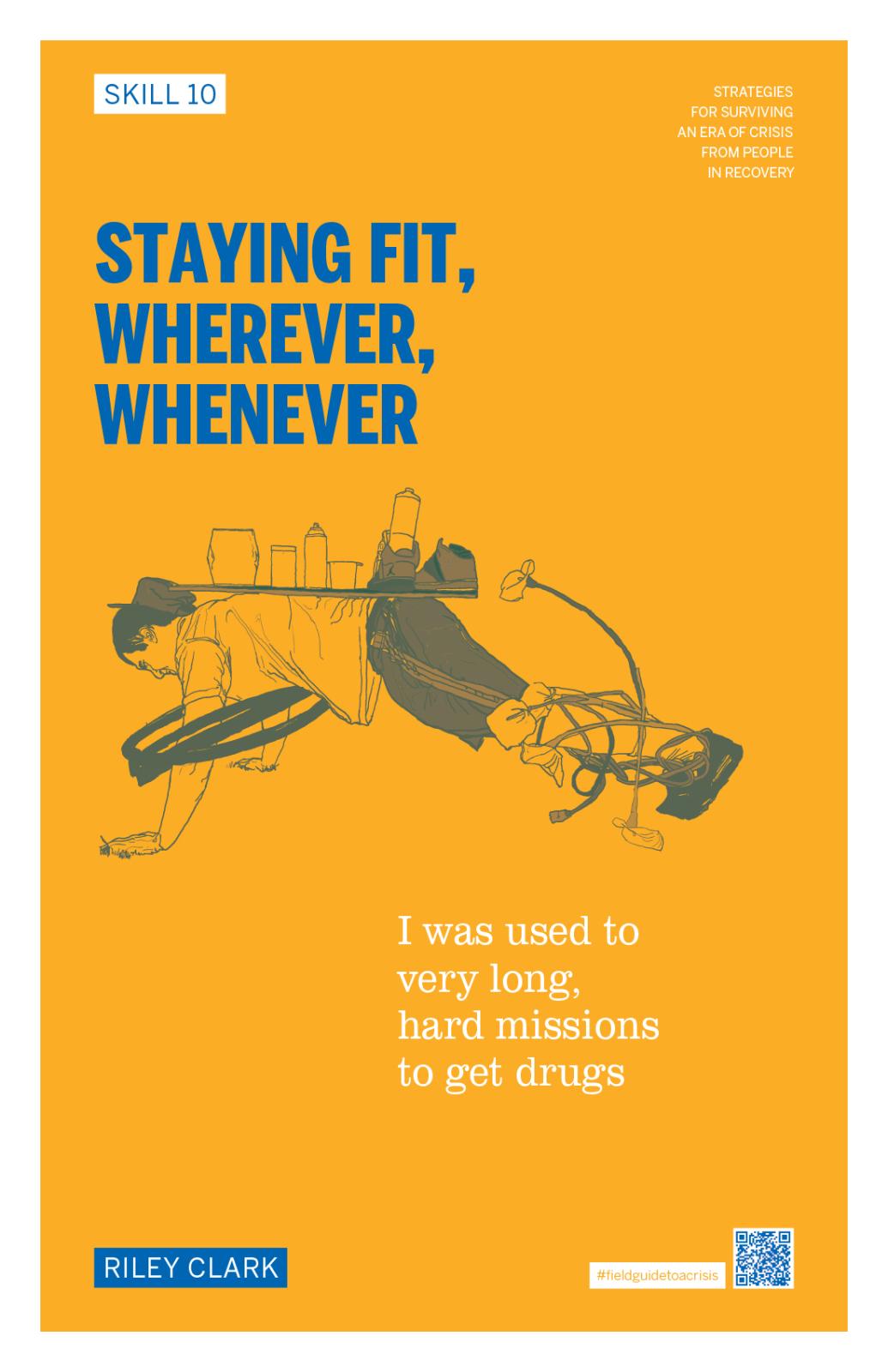—
FIELD GUIDE TO A CRISIS:
Strategies for survival from people in recovery.
Field Guide to a Crisis is an ongoing socially engaged project that began in 2020 at the beginning of COVID-19. It functions as a teacher's training tool by mentoring people residing in sober living homes in Eureka, CA to become “educators in resiliency.” Participants get the opportunity to identify, present, and teach their own crisis resilience skills through lesson plans, instructional videos, and public presentations.
Who do we normally turn to in a crisis? This project challenges us to rethink the voices that are elevated in times of crisis. Society traditionally turns away from people dealing with a substance abuse disorder, out of projected stigma. This work flips that narrative by activating the unique skills that individuals have developed in their recovery process. The program aims to build confidence, self-esteem, and resilience in its participants by uplifting lived experience to the status of expert knowledge.
Who do we normally turn to in a crisis? This project challenges us to rethink the voices that are elevated in times of crisis. Society traditionally turns away from people dealing with a substance abuse disorder, out of projected stigma. This work flips that narrative by activating the unique skills that individuals have developed in their recovery process. The program aims to build confidence, self-esteem, and resilience in its participants by uplifting lived experience to the status of expert knowledge.
Being seen and feeling valued are human dynamics that cultivate a living and multi-dimensional perspective within self.
INSTRUCTIONAL VIDEOS
Students create instructional videos demonstrating their skill, which serves as the turning point to becoming an educator.
PAID INSTRUCTORS
Throughout the year public lectures are organized to give participants experience and confidence. The program has already given 3 one-hour online performances (2 at the annual Portland State Art+Social Practice Assembly, and 1 at the Center for Photographic Art).
STUDENT TO TEACHER
As participants begin to make the transition from student to teacher, they work on a curriculum of three assignments showcasing the methods for developing their particular skill. Once the curriculum is complete other participants explore each other’s skill with the skill holder serving as mentor.
Aaron Ochoa
Skill: Taking care of your shit before it builds up.
Part 1: Journal
Over the next five days, keep track of activities you do to take care of your shit before it builds up. Write down the day, location and activity.
Part 2: Floor Plan
Draw a floor plan map of the space that you are doing the activities from Part 1. The floor plan can be any shape. Include a key of the different categories of activities, which can be color coordinated or with different types of lines. Once you have the floor plan drawing, fill in the map with your movements. Don't overthink it. It can be representative.
Part 3: Reflection
Create a list of the consequences of not completing the activities. Once you understand and embrace them, change the language from I to You, as a means of passing on the lesson to others.
Skill: Taking care of your shit before it builds up.
Part 1: Journal
Over the next five days, keep track of activities you do to take care of your shit before it builds up. Write down the day, location and activity.
Part 2: Floor Plan
Draw a floor plan map of the space that you are doing the activities from Part 1. The floor plan can be any shape. Include a key of the different categories of activities, which can be color coordinated or with different types of lines. Once you have the floor plan drawing, fill in the map with your movements. Don't overthink it. It can be representative.
Part 3: Reflection
Create a list of the consequences of not completing the activities. Once you understand and embrace them, change the language from I to You, as a means of passing on the lesson to others.

